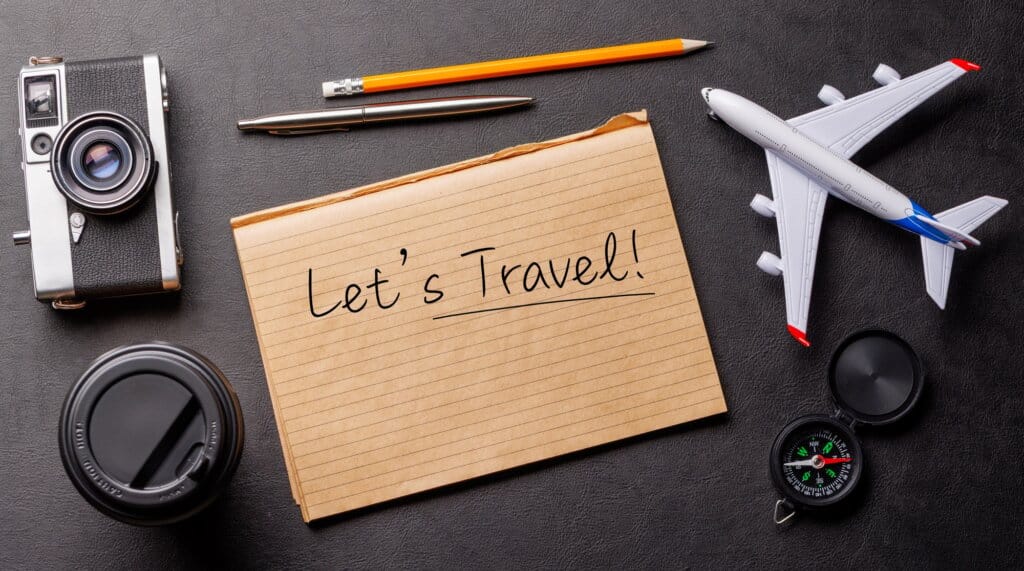1. Mail, Bills & Life Admin
When you’re away for weeks or months, who collects your mail? What about energy bills, rent, or insurance notices?
Key Tips:
- Set up mail forwarding with Royal Mail or use a digital mailbox service (e.g. UK Postbox).
- Automate essential payments for rent, council tax, mobile bills, etc.
- Use a personal finance app to track and get alerts for due dates (like Monzo, YNAB, or Emma).
“According to GoCardless, UK households miss over 200 million bill payments annually, with many linked to forgotten scheduling during travel or busy periods.”
2. Health Care Access While Travelling
Most travellers assume their GP or private provider can help from afar. But what happens when you’re working in another city for months and need urgent care?
Tips:
- Register as a temporary patient with a local GP if away for over 14 days.
- Always travel with a copy of your NHS number, vaccination records, and key health history.
- Keep a digital copy of prescriptions and consider services like Echo (now LloydsDirect) for NHS repeat delivery.
- Carry a basic first-aid and wellness kit: painkillers, plasters, cold remedies, sleep aids.
NHS guidance allows temporary GP registration if staying somewhere for longer than 14 days. Many professionals don’t know this and delay care.
3. Banking & Proof of Address Issues
Need to update your bank address or receive documents while on a contract? Business travellers often face friction when:
- Applying for short-term loans
- Requesting replacement bank cards
- Proving address for legal/tax matters
Solutions:
- Use a friend/family address as a consistent ‘home’ base for essential banking.
- Consider virtual banking options like Revolut, Monzo, or Starling, which allow easier online verification.
- Scan and upload copies of utility bills, tenancy agreements, and contracts before departure.
4. Prescription Management & Repeat Medications
If you’re prescribed medication, don’t assume your local pharmacy in a new city will fill your repeat scripts easily.
What to Do:
- Use apps like LloydsDirect or Pharmacy2U to get medication delivered.
- Talk to your GP about issuing a longer supply before departure.
- Always bring written prescriptions, in case of tech issues.
Around 15% of working professionals forget to bring essential medication during extended trips (source: Nuffield Health Survey 2023).
5. Emergency Contacts and Local Services
It’s not just about work—what if something goes wrong personally, at home, or while you’re away?
Recommendations:
- Carry a printed emergency contact sheet (phone battery might die).
- Store ICE (In Case of Emergency) info on your phone lock screen.
- Bookmark local urgent care, dentist, hospital, and embassy/consulate details.
6. Post-Travel Tax and Documentation
Long-term business travel can impact your taxes, depending on whether you’re a contractor, PAYE employee, or limited company director.
Important To-Do’s:
- Keep a digital record of mileage, accommodation receipts, and work hours.
- Use HMRC-approved apps like MileIQ or QuickBooks Self-Employed.
- Review subsistence and accommodation rules under HMRC if you’re expensing travel.
Over 40% of UK freelancers fail to log claimable expenses, costing them hundreds annually (IPSE, 2022).
7. Addressing Mental Health & Fatigue
Being away from home is mentally draining. Constantly moving, sleeping in new beds, and being away from loved ones has a real effect.
Self-Care Strategies:
- Pack familiar comforts: favourite pillow, scent diffuser, or book.
- Schedule weekly video calls with friends/family.
- Use meditation or wellness apps (e.g., Headspace, Calm, Balance).
- Journal your week—not just your to-dos.
Studies show that 60% of frequent business travellers experience higher anxiety and sleep disruption compared to their in-office peers.
8. Insurance (You Probably Need More Than You Think)
Most assume their employer’s travel insurance covers everything. Often, it doesn’t.
Key Types to Review:
- Business travel insurance (not the same as holiday cover)
- Income protection for self-employed individuals
- Personal liability insurance for contractors
- Accommodation damage cover (if staying in serviced or short-let housing)
9. Digital Life While Travelling
Switching Wi-Fi networks constantly. Using unsecured coffee shop internet. Keeping track of login codes while on new devices… It’s a digital nightmare.
What Helps:
- Install a VPN (NordVPN, ProtonVPN, Surfshark)
- Turn on 2FA for work accounts (Google Authenticator, Duo)
- Use LastPass or Bitwarden for managing passwords securely
- Keep 1 cloud-based file folder that’s mirrored on multiple devices (Google Drive/Dropbox)
10. Accommodation Fatigue & Functional Living
Long-term travellers often find themselves switching accommodation multiple times. This creates:
- Stress over check-in/check-out logistics
- Constant reorientation to new layouts, kitchens, or Wi-Fi setups
- Feelings of impermanence or rootlessness
What Helps:
- Unpack fully when staying >3 nights
- Personalise space quickly (candles, plants, lighting)
- Use shared online documents to track past stays, addresses, and host contacts
People Also Ask: Business Travel Logistics FAQs
What are the most overlooked aspects of business travel?
Mail handling, prescription access, healthcare planning, and accommodation transition logistics are among the most overlooked issues.
How do professionals manage health while travelling for work?
Through temporary GP registration, mobile prescriptions, wellness routines, and mental health support apps.
Can long-term business travel affect taxes?
Yes. Travel expenses, accommodation, and mileage should be recorded for HMRC purposes, especially for contractors or self-employed individuals.
What tools help with life admin while travelling?
VPNs, finance apps, password managers, cloud storage, and booking trackers help streamline travel.
How can I avoid burnout during extended business trips?
Build in routine, prioritise rest, personalise accommodation, and stay socially connected.
Final Thoughts
Business travel is often romanticised. But the reality involves a tangled mess of forgotten logistics that, if left unmanaged, can derail even the most organised professional.
By anticipating the life admin, tech hurdles, health gaps, and emotional fatigue that come with long-term travel, you not only reduce risk—you perform better. You make space for productivity, presence, and peace of mind.
Whether you’re a solo contractor, relocating staff member, or business travel coordinator, these overlooked logistics are where real travel readiness begins.



